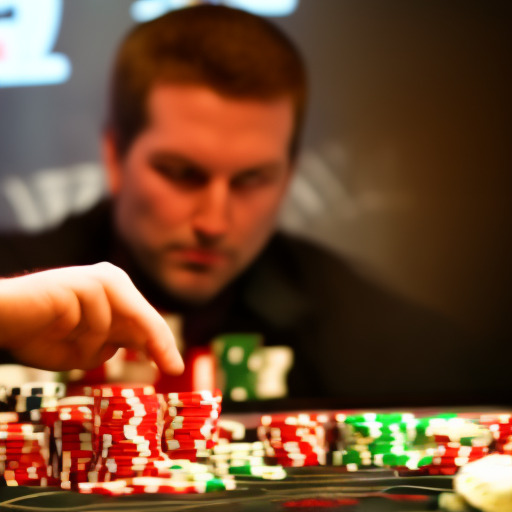When it comes to winning a good hand in poker, it takes more than sheer luck. There must be an understanding of when to strategize, bluff, and take advantage of other players just waiting for the opportune moment. The practice of bluffing in poker is an art, and it takes skill and expertise to know when the time is exactly right. To understand this concept it is essential to discover the nuances of bluffing, and how a player is able to effectively identify the moments in which to make the difference between victory and defeat.
•The Art of Bluffing
Have you ever watched a poker game on TV and wondered how the players always seem to know what cards their opponents have? Chances are, they’re using the art of bluffing to their advantage. Bluffing is a technique used in many games, from poker to chess, where a player pretends to have a stronger hand or position than they actually do. It’s a powerful tool that can intimidate opponents and lead them to make unwise decisions – if done correctly.
One of the keys to successful bluffing is reading your opponent. Are they easily rattled? Do they fold under pressure? If so, they may be a prime target for a bluff. Another important consideration is timing. A well-timed bluff can pay off big, but if you bluff too often or at the wrong moment, your opponents may catch on and call your bluff. As with any skill, practice makes perfect – so if you’re interested in mastering the art of bluffing, hit the tables and start bluffing!
•Reward and Risk
Reward and Risk
Investing is a great way to earn money or grow your wealth, but it’s important to understand the relationship between reward and risk. When you make an investment, there’s always a chance that you could lose money or fail to make a profit. However, the potential rewards can be significant, especially if you invest wisely.
For example, let’s say you’re interested in buying stocks. If you invest in a well-established company with a track record of consistent growth, you could potentially earn significant returns over time. On the other hand, if you invest in a smaller or less-established company, the risk of losing money is higher, but the potential rewards could be even greater if the company experiences success. It’s all about finding the right balance between risk and reward and making informed decisions based on your financial goals and tolerance for risk. Remember that no investment is completely risk-free, but by doing your research and diversifying your portfolio, you can minimize your risk and increase your chances of success.
•Mastering the Craft
Mastering the Craft
There’s no easy way to say this- mastering a skill takes time and effort. The road to becoming a master always involves ups and downs, twists and turns, and plenty of moments of self-doubt. But here’s the good news: it’s not impossible, and anyone can do it.
Take the example of Mike, a friend of mine who’s been honing his craft as a writer for years. When he first started, he struggled with plot holes, poorly constructed characters and rejections from editors. But he didn’t give up, and with practice and dedication, he’s now a published author with a loyal readership.
- My point is this: you can’t become a master overnight, so don’t be too hard on yourself. Believing in yourself and your abilities is crucial, but so is putting in the work.
- The saying “practice makes perfect” isn’t just a cliché – it’s the truth. You don’t need to be perfect, but you do need to show up and work at it, every single day. Set achievable goals, take time to learn from your mistakes, and keep pushing yourself out of your comfort zone. Before you know it, you’ll have mastered your craft, and the rewards will be worth all the effort you put in.
So, whether you’re looking to become an expert in knitting, public speaking or cooking, remember that mastering a skill takes time, patience and plenty of practice. But if you keep at it, with hard work and dedication, you can truly become a master of your craft.
When it comes to bluffing in poker, the saying is true: timing is everything. Just like taking a big risk can often result in a big reward, knowing when to bluff can mean the difference between winning and losing. With careful consideration and the right intuition, you can be a master at bluffing and unlock the hidden potentials of poker-playing. Good luck and happy bluffing!